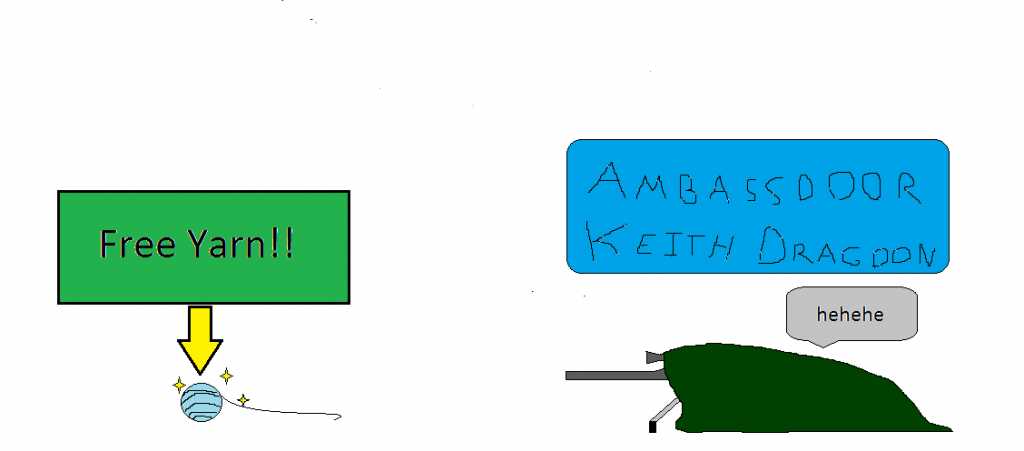MERLWYB WILL BE VOICED!?!?!?
Oh Merlwyb! Seduce me with your sexy voice!
Stop looking at me that way, everyone! I'm not creepy! I swear! O_O
Thread: So... Merlwyb will be voiced
-
04-10-2013 01:33 PM #71Player

- Join Date
- Sep 2011
- Location
- Limsa Lominsa
- Posts
- 627
- Character
- Chie Kaisuri
- World
- Balmung
- Main Class
- Marauder Lv 60
(1)
-
04-10-2013 01:41 PM #72
Merlwyb will be voiced by Meryl Streep, and not just because their names are so similar.
...okay, yes it is.(1)
-
04-10-2013 01:46 PM #73
-
04-10-2013 02:23 PM #74
-
04-10-2013 03:21 PM #75Player

- Join Date
- Apr 2011
- Location
- MIA
- Posts
- 428
- Character
- Mudd Vader
- World
- Balmung
- Main Class
- Pugilist Lv 54
I was thinking maybe someone like Susan Duerdan, an Emma Honeywell type voice (The Last Remnant)
but it appears she already did voices for the release version?
She's not the monk from the Gridania storyline is she? ;v(0)
-
04-10-2013 03:30 PM #76
-
04-10-2013 05:21 PM #77Player

- Join Date
- Mar 2011
- Location
- Lotus Gardens
- Posts
- 3,240
- Character
- Thal Icebound
- World
- Ravana
- Main Class
- Dancer Lv 100
We've talked a lot about the skill of voice actors, but not directors.
In the majority of works that I have watched in both languages, Japanese will often come out on top, but not always. When a different language has suceeded in winning my adoration, it is because they have done something right.
The ability of a voice actor to properly understand the plot, circumstances of what they are saying and what it means can be felt in the quality of their performance. And their ability to do this relies upon the director being able to properly convey this to their actor. It is the difference between being "angry" or being "angry at someone because they are planning to hurt someone that the audience won't yet know is your brother till season 2". Foreign language translation directors will always have it harder, because they didn't write the bloody thing in the first place, but admittedly they are getting better.
Also, Abriael, are you fluent in German? I don't intend to criticise your experience, but I'm keen for some extra perspective. With many languages, particularly German, fluency in a language deeply affects one's perspective of emotion expressed through it.
When I was living in Germany, I experienced a dubbing industry that I thought did things rather well based off its experience dubbing mainstream film, not just cartoons. Of course I was a young teenager at the time, so it might be a bit of childhood nostalgia talking.
Either way, I'm gonna give English and (if it exists) German a whirl. If they make me cringe due to poor performances, then I'll switch over to Japanese.(0)
-
04-10-2013 05:52 PM #78Player

- Join Date
- Mar 2011
- Location
- Ul'Dah
- Posts
- 4,821
- Character
- Abriael Rosen
- World
- Goblin
- Main Class
- Gladiator Lv 100
Contrary to popular belief directors are normally good across the board. I didn't really meet many that cared for doing a sloppy job in any country. Of course there are good ones and a bit worse/less experienced ones, but it's rare for someone to become a director without being very passionate about the job.
The biggest problem is the aforementioned tendency to use medium/low tier actors (both in quality and experience) for voice acting in the West, while star-level actors think voice acting (especially for games and animation, unless it's top-tier animation like Disney) is beneath them and will most of the times not accept a role at all.
In Japan Voice acting, including anime and games (actually anime and games more than the rest) is considered a top tier job, so you'll see star-level actors doing MORE voice acting for anime and games than they do voice acting for live action or even live action itself. Being chosen for the best games and anime is an honor even for the biggest stars and for the most experienced voices. Which is one of the primary reasons why Japanese voice acting simply can't be compared to other countries, especially for games and anime.
There's also another VERY important factor, which is budgeting. A higher budget doesn't just impact the quality of the actors, but a crucial factor that many don't consider: how many lines have to be recorded during a shift.
A lower budget means that the actors have to complete the script in fewer hours (you pay the studio and the actors (partly for actors, as in most country their fee is a mixed calculation between hours and number of lines) by the hour or by the shift, that is a fixed number of hours, depending on country and studio), which means that they have to pull more lines faster.
This means that they have less "takes" at their disposal to get the same line right, which inevitably brings to a lower quality job. In the west games and animation are considered less important jobs, so lower budgets are dedicated to their voice acting, which means less hours, more lines per hour, less takes to get things right and a worse job.
This is also influenced by the experience of the actors mentioned above. A more experienced VA can get each line right much quicker than an inexperienced one, and often a director is forced, when dealing with less experienced ones, to just settle with what he can even if he's not completely satisfied, because sitting on the same line too long would cause an overflow of the allocated hours, with an increase of the necessary hours that studio administrations and clients really don't like to hear about.
Since in Japan you can get star-level and veteran actors for voice acting easily (much more than in the west) and those actors actually built their whole career on voice overs and aren't just live action and drama actors lent to voice acting in-between jobs, they have more experienced in voice acting, and even with the same budget they can normally get the lines "right" quicker, because that's their main line of work and that's what they're used to.
Of course there's also a matter of pride. In Japan Voice Actors are extremely proud of their job on games and anime, because in Japan games and anime are considered top-tier audio-visual production, as opposed at the rest of the world, where they're considered less. When an actor is proud of what he's doing, he'll automatically give more, be faster, study the characters on his own time more and so forth.
There's also another factor that doesn't have much to do with actors at all, and that's the quality of the script and how "hands on" the scriptwriter is with voice acting.
This is something still very rare in the West, where most often the scriptwriter just drops the script on the studio and forgets about it.
The best workflow for localization and voice acting is having writing the script split between two different professional figures. First the translator (which should always be a native speaker in the original language) translates the original script in the target language, doing a very literal translation with notations. Then there's a second professional figure that normally is referred to as the scriptwriter proper or sometimes the "adapter" (depending on country), that should always be a native speaker in the target language but is possibly very knowledgeable in the culture of the original language (which was my primary practical role when I did this job, besides overall supervision) converts the literal translation into the final script, turning literal expression into ones that sound better and/or more elegant and/or more fitting to the characters in the target language. He also does the lip sync.
I don't know what's SE's procedure with this, but very good localization companies will send the scriptwriter to supervise voice acting (shouldering an additional cost, because of course you have to pay him for that, and if he's not paid by the hour, you can't use him for other projects, and voice acting takes a lot of time). This helps a LOT, as he has a much clearer vision of the characters, their feelings and the story (voice actors very often act the lines in the most convenient order, which is NOT necessarily the right chronological order, and they often are in the room by themselves, and not with the counterpart they're actually talking to), he also can correct pronunciations of names on the fly, explain to the actors necessary cultural nuances and even correct lines on the fly, for instance when the original lip sync doesn't fit and a line is really too long or too short to be acted correctly (and it happens, since the scriptwriter most of the times isn't an actor, so when he "tests" the line during scriptwriting he can recite it too fast or too slow compared to the actual actor).
This is extremely beneficial to the overall quality of voice acting, but it comes with a problem. It has a cost. Not only for the scriptwriter himself, but also because having the scriptwriter in the studio doing the job I described means that the process will inevitably take more time as he correct mistakes that the director would miss or gives information that the director wouldn't know. More time means more lines acted in the same amount of time, and more money spent for actors and studio.
Unfortunately both having scriptwriting split between translator and scriptwriter proper, and having the scriptwriter supervise voice acting is still very rare in the west.
Basically there are a large number of factors that play into Japan's excellence in voice acting. Some I explained in my previous posts, some in this, there are more, and most of them are linked and influence each other. They have to do with how voice acting is seen, budgets, workflows and mentality. This doesn't mean that western voice actors are terrible, and western quality is gradually improving, but there's still a long way to go before they can be considered even in the same order of magnitude.
And no. Not fluent in German. I do have some knowledge of the language, but of course when I worked for the German market I had to work with professionals from Germany, as my role (for Germany and France) was overall supervision.
Even without knowing the language, you do get used to its sound, and while I never told that German voice actors do an abysmal job in general, they don't do an exceptional job as well. There are some very good ones, but they are rarer than in other countries, and the work pacing to which they are used doesn't really allow for top quality, unless we're talking about top tier Hollywood movies.
But hey, we have some wondering about my "credentials" more than about what I write, so i guess everyone is free to disbelieve what I say. After all we're just "weaboos" no? (0)
(0)Last edited by Abriael; 04-10-2013 at 06:18 PM.
-
04-10-2013 06:32 PM #79Player

- Join Date
- Mar 2011
- Location
- Lotus Gardens
- Posts
- 3,240
- Character
- Thal Icebound
- World
- Ravana
- Main Class
- Dancer Lv 100
No, not all weaboos, just people being interested and analytical and having our personal preferences.

Very good points there about budgets and scriptwriting. I at least have faith they won't mess up the script.(0)
-
04-10-2013 06:41 PM #80Player

- Join Date
- Mar 2011
- Location
- Ul'Dah
- Posts
- 4,821
- Character
- Abriael Rosen
- World
- Goblin
- Main Class
- Gladiator Lv 100
Depends mostly on the procedures, and honestly I'm not privy in the details of what SE does. I do think the localization team does a lovely job with the localization proper (even if I'm personally more leaning towards a slightly more literal style, but that's nuances and mostly a matter of taste/philosophy). Unfortunately when it comes to voice acting, depending on what SE's workflow is, it may very well be out of their hands.
I would love to hear what their favored procedures are, but I'm not sure they'd be willing to share. Maybe we'll know more with the further posts on the developer blog.(0)Last edited by Abriael; 04-10-2013 at 06:44 PM.



 Reply With Quote
Reply With Quote










